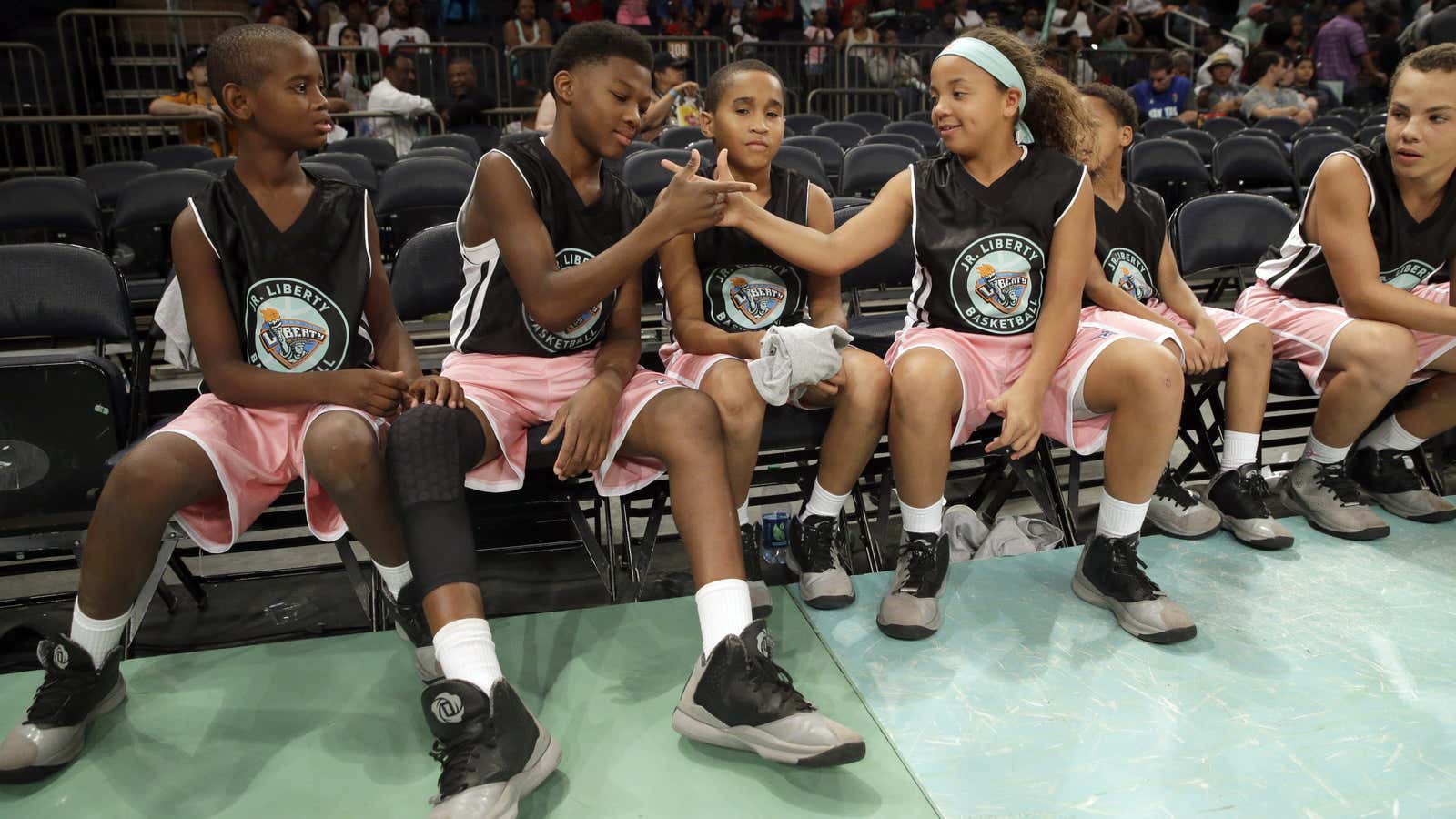A “girl” in the strictest sense is a young female person. But “girly” or “girlish” or “like a girl” stereotypically suggest pink, curlicues, high-pitched, fruity, not athletic, not serious—in opposition to stereotypes of masculinity as mature, tough, rough, boyish, high in alcohol content. (Since the 1990s, in a backlash to the word’s connotation of weakness, people have also tried to redefine “girl,” with “girl power,” marketing campaigns, and chatty t-shirts.)
But a brief etymological trip reveals that when the word started out in English, it wasn’t about being female at all. ”Girl” was originally gender neutral.
When “gyrle” first appeared in English, in the 1300s, it just meant a young person—that is, a girl or boy. In his General Prologue to The Canterbury Tales, written starting in the 1380s, Geoffrey Chaucer wrote of the Summoner:
In daunger hadde he at his owene gyse
The yonge gerles of the diocise,
And knew hir conseil, and was al hir reed.
The Summoner knows all the secrets of the young people in the diocese—not just the young girls.
As Paul Anthony Jones writes in The Accidental Dictionary, due out next month in the US from Pegasus Books, by the early 1400s we begin to see the gender-oriented use of “girl.” According to the Oxford English Dictionary, this use took over by the next century, though we don’t know why. From John Heywood’s 1546 book of proverbs:
The boy thy husbande, and thou the gyrle his wyfe.
Before that, the origins of “girl” are unknown. It could have come from gyrela, an Old English word for garment, or from Middle Low German Gör or Göre, meaning girl or small child, but scholars aren’t sure about either explanation. Anatoly Liberman, in An Analytic Dictionary of the English Etymology, argues that the word is from a German word group starting with “g” or “k” and ending in “r.” G-r words refer to “young animals, children, and all kinds of creatures considered immature, worthless, or past their prime,” he wrote.
Word meanings are always evolving, but in the larger context of English etymology, this kind of total re-gendering is not that common, Jones tells Quartz. Another of these unusual cases is “bimbo,” which, when it came to slang in the early 1900s, referred just to men. ”A bimbo originally was a big brutish man, a big bouncer, a security guard kind of guy, a heavy gangster,” he says. In just a few decades, it gained the meaning we use exclusively now—a dumb, attractive girl.
